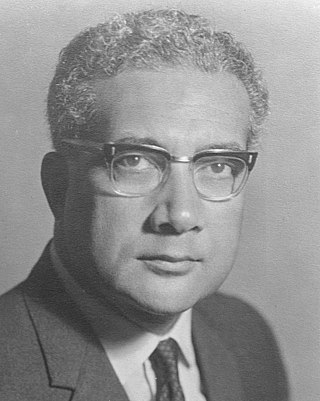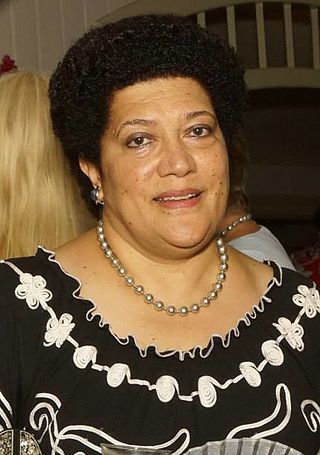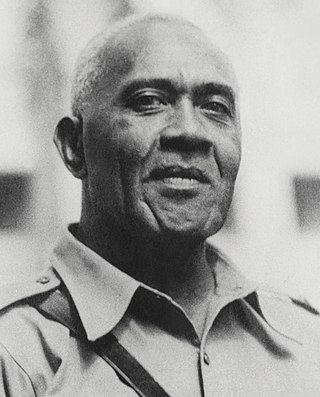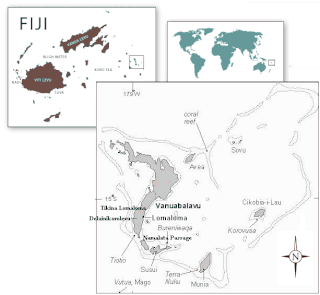Related Research Articles

RatuSir Kamisese Mara, was a Fijian politician, who served as Chief Minister from 1967 to 1970, when Fiji gained its independence from the United Kingdom, and, apart from one brief interruption in 1987, the first Prime Minister from 1970 to 1992. He subsequently served as president from 1993 to 2000.

Adi Koila Mara Nailatikau is a Fijian lawyer, who has served as a diplomat and politician. She was also First Lady of Fiji from 2009 until 2015, as the wife of Ratu Epeli Nailatikau, the President of Fiji.

RatuSeru Epenisa Cakobau was a Fijian chief, monarch, and warlord (Vunivalu) who united part of Fiji's warring tribes under his leadership, establishing a united Fijian kingdom. He was born on Natauloa, Nairai Island in Lomaiviti but spent his youth on Vanuaso, Gau, Lomaiviti, later returning to Bau to re-establish his Father's Ratu Tanoa Visawaqa reign. Ratu Epenisa Seru Visawaqa was given the name "Cakobau" meaning destroyer of Bau, in reference to his grandfathers' (Nailatikau) effort to first claim the tile from the people of Butoni and Lovoni, returned with most of his warriors from Vanuaso, Gau, Lomaiviti to coup the leadership in Bau then and later takeover his father's title; known after his father as the 6th "Vunivalu" or Warlord of Bau.

RatuSir Josefa Lalabalavu Vanayaliyali Sukuna was a Fijian chief, scholar, soldier, and statesman. He is regarded as the forerunner of the post-independence leadership of Fiji. He did more than anybody to lay the groundwork for self-government by fostering the development of modern institutions in Fiji, and although he died a dozen years before independence from the United Kingdom was achieved in 1970, his vision set the course that Fiji was to follow in the years to come.

RoLala, Lady Mara, maiden name Litia Cakobau Lalabalavu Katoafutoga Tuisawau was a Fijian chief, who was better known as the widow of Ratu Sir Kamisese Mara, modern Fiji's founding father who served for many years as Prime Minister and President of his country. As Fiji's First Lady, Adi Lala took on a diplomatic role, frequently representing her country abroad. She was regarded as a formidable and astute woman, whose influence on her husband was said to be considerable.
Ratu is an Austronesian title used by male Fijians of chiefly rank. An equivalent title, adi, is used by females of chiefly rank. In the Malay language, the title ratu is also the traditional honorific title to refer to the ruling king or queen in Javanese culture. Thus in Java, a royal palace is called "keraton", constructed from the circumfix ke- -an and Ratu, to describe the residence of the ratu.
The House of Chiefs in Fiji consists of the Fijian nobility, composed of about seventy chiefs of various ranks, majority of which are related. It is not a formal political body and is not the same as the former Great Council of Chiefs, which was a political body with a prescribed constitutional role, although the membership of the two bodies did overlap to a great extent.

Kubuna is one of the three confederacies that make up Fiji's House of Chiefs, to which all of Fiji's chiefs belong.
Tovata is one of three confederacies comprising the Fijian House of Chiefs, to which all of Fiji's chiefs belong.
Ratu Alifereti Finau Mara was a Fijian lawyer, politician, and diplomat. He was best known as the eldest son of former Prime Minister and President Ratu Sir Kamisese Mara. Since December 2001, he held the official position of Roving Ambassador and High Commissioner, representing Fiji's interests in Pacific Island nations. It was reported on 13 March 2006 that he had been chosen to succeed his late father as Paramount Chief of the Lau Islands, but in 2009 the succession was still unclear, with Mara reportedly refusing to discuss the issue with the village elders.
Naming conventions in Fiji differ greatly, both between and within ethnic groups in Fiji. Indigenous Fijians have a set of cultural practices which today are more loosely followed, and to some extent blended with elements of European culture with regard to names. In the Indian community, traditional Indian naming practices co-exist with influence from the Fijian and European cultures.

Turaga na Vunivalu na Tui Kaba, shortened as Vunivalu, is the Paramount Chief of the Kubuna Confederacy of the island of Bau in Fiji. Loosely translated the title means Warlord of Bau or "Root of War". The succession to the title does not follow primogeniture, but the candidate must be a high-ranking member of the Tui Kaba clan.

Lomaloma is a village at the south of the island of Vanua Balavu in the Lau archipelago of Fiji. The settlement is part of the tribal district of Tikina, Lomaloma and consists of 9 villages, 13 Yavusa (tribes), 42 Mataqali (clans), and 54 family units known as Tokatoka. The nine villages of Lomaloma Tikina are Lomaloma, Sawana, Susui, Narocivo, Namalata, Uruone, Levukana, Dakuilomaloma, and Tuvuca.
RokoTaliai Tupou (17??-1875) was a Fijian nobleman. He is considered to be the progenitor of the noble household Vatuwaqa in the chiefly Vuanirewa clan and as such, was the first member of this noble household to hold the title Tui Nayau. His reign marked the growth of Christianity in Lau and the slow expansion of Tongan ambitions in Fiji, led by Enele Ma'afu. As this period marked increasing contact with Europeans, records from this point forward in regard to the history of Lau are well documented.
Tui Lau is a Fijian chiefly title of recent history which was created during the time of Ma'afu and his conquests.
AdiLitiana Maopa (1864-1933) was a prominent member of two of Fiji's main chiefly houses, those of the Tui Nayau, the paramount chief of the Lau Islands, and the chiefly house of the Vunivalu of Bau the paramount chief of the Kubuna Confederacy.

Turaga na Rasau is a traditional Fijian chiefly title of the Lau Islands. Prior to Fiji's colonial days, Fiji had many different Vanua with their own Paramount Chieftain which exercised no authority over the other; a saying from the island of Kadavu aptly summarises it "Nomu Turaga o sega na noqu Turaga" or "Your Chief is not my Chief" also the people of Beqa Island were of a similar opinion saying "Qali Cuva Ki Lagi" or "Subject only to heaven" and would bow to no outside Chieftain, but at the turn of the 20th century aspects of the traditional social structure remained, but for administrative purposes three main Matanitu were solidified and formed as they were the dominant consolidated powers at the time being that of Kubuna, Burebasaga and Tovata. With regard to the Rasau while its traditional origins were in Kubuna on Bau the titles traditional authority in modern Fiji is now in Tovata, Lau in particular Lomaloma Tikina on the Island of Vanua Balavu.
Lady Liku was a woman of chiefly title in the Fiji Islands and was the wife of the late Ratu Sir Lala Sukuna.
Kapaiwai Tuimacilai Mara, chiefly seafarer, and descendant of the Vunivalu of Bau.
RatuJione Atonio Rabici "Tom" Doviverata was a Bau chief and medical doctor and administrator in colonial Fiji.
References
- Lau Islands, Fiji, By Arthur Maurice Hocart, Published 1929, Bernice P. Bishop Museum, Ethnology, 241 pages, Original from the University of Michigan, no.62 1929, Digitized Feb 23, 2007. Page 150 has details on titles like Ratu and Roko and their use